- 4 hours ago
- Manchester
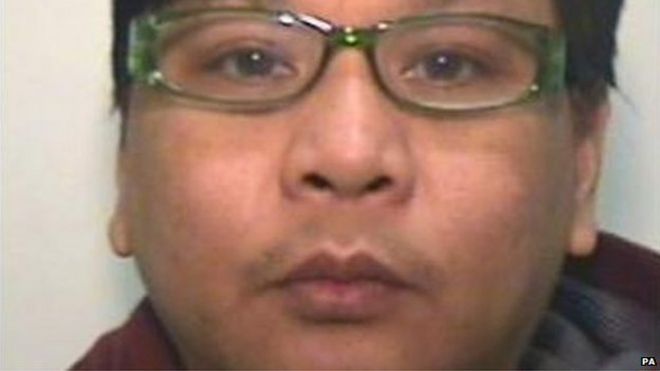
A nurse has been convicted of murdering two patients and poisoning 20 others at a Greater Manchester hospital.
Victorino Chua killed Tracey Arden, 44, and Derek Weaver, 83, at Stepping Hill Hospital in Stockport by injecting insulin into saline bags and ampoules.
These were then unwittingly used by other hospital nurses on Chua's victims, who were mostly elderly.
The father-of-two, 49, who was cleared of a third murder charge, left one patient with a serious brain injury.
'Confession' letter
Chua, who was found not guilty of the murder of 81-year-old Arnold Lancaster but convicted of poisoning him, showed no emotion as the verdicts were passed. He will be sentenced on Tuesday.
Police and prosecutors have also now revealed concerns over whether Chua was even qualified to work as a nurse in the UK.
The poisoning took place on two wards, often used for treating elderly patients with complex illnesses, between June 2011 and January 2012.
After police were called in, Chua was said to have "changed tack" by sabotaging prescription charts, doubling and trebling dosages.
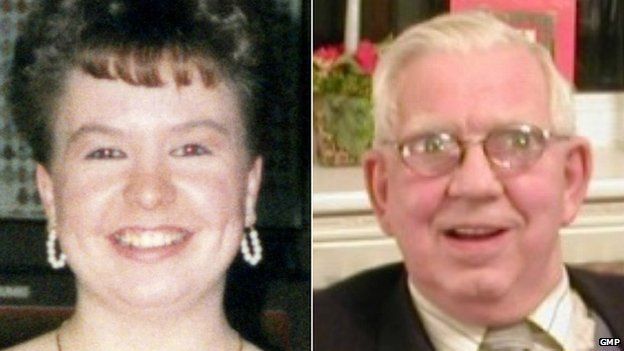
The Filipino father of two was arrested in January 2012 and rearrested in March 2014.
Among the evidence produced by the prosecution was a self-penned letter found at Chua's home in Stockport.
In the letter, described as "the bitter nurse confession" by Chua, he said he was "an angel turned into an evil person" and "there's a devil in me", who had things he would "take to the grave".
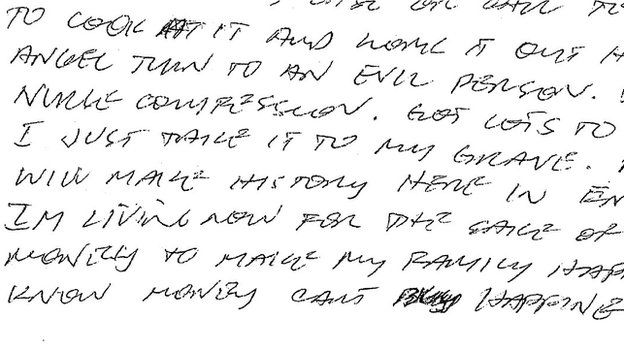
The prosecution argued the Filipino national had decided to take out his personal frustrations on patients "for reasons truly known only to himself".
The arrest and charging of initial suspect, the nurse Rebecca Leighton, in July 2011, was a key part of the defence team's case.
She spent six weeks in jail but was cleared of any wrongdoing.
Chua's defence claimed the prosecution was under "huge pressure" to bring someone in.
However, after 11 days of deliberations, the jury at Manchester Crown Court found Chua had indeed murdered two of his patients and caused harm to many others.
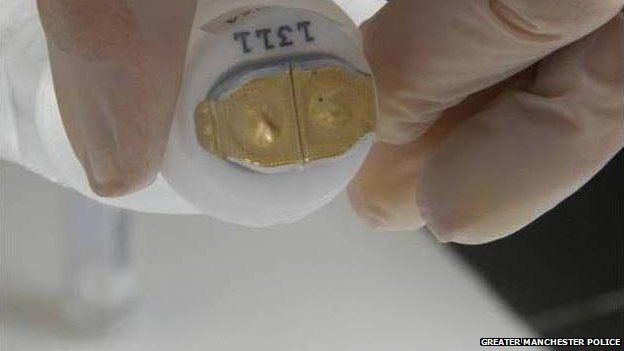
One of the victims, Philip Jones, said "he thought he was a goner" as a result of being poisoned by the nurse.
When asked why he thought Chua had poisoned him, he replied: "He must have been stressed out or something.
"I think he must have been on some medication or something. I can't see the sense in anybody doing anything like that to any family."
Zubia Aslam, who survived her saline drip being contaminated, said: "At least someone has been brought to justice and it gives a little peace of mind - but it still feels as though there is a scar left after all of this, a scar which will fade with time but which will never go away.
"Life has not been the same and never will be. This has turned my life upside down, but also that of my family and I still have questions about how this was allowed to happen in the first place."
Greater Manchester Police (GMP) said it was their "biggest case in a decade". Police and detectives hugged members of the legal team after the jury left court.
Ben Southam, from the Crown Prosecution Service (CPS), described the "complex case" as an "enormous task" involving thousands of pages of evidence.
Outside court, Det Supt Simon Barraclough said: "It's been a search for the truth and the jury has reached the right decision."
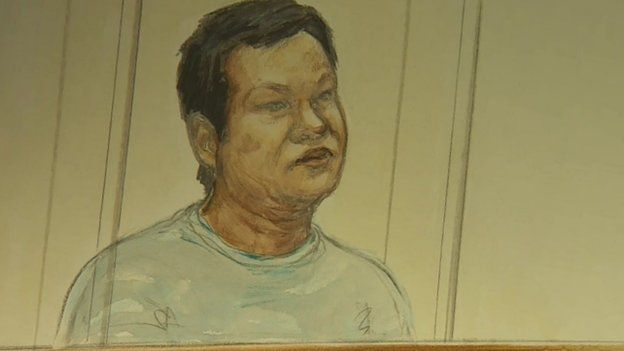
When GMP officers travelled to Manila, the capital of the Philippines, they discovered inconsistencies between his two nursing certificates.
Det Supt Barraclough said: "Those certificates don't correspond to each other. Even assuming one of them is right, the other is not."
While police were unable to definitively confirm Chua's certification was forged, Det Supt Barraclough said: "All I can say is we have absolutely no confidence that those are bona-fide qualifications."
And prosecutors suspect Chua did not even sit his final nursing exam.
Det Supt Barraclough said: "You have to present yourself with a photo of who you are to take the exam. When I look at that photograph, to me the person who presented to do that exam does not look remotely like Victorino Chua."
Judith Morris, nursing director at the Stockport NHS Foundation Trust, which runs Stepping Hill Hospital, said: "When he was employed by us we did our usual checks, which is checking to see if someone is on the Nursing and Midwifery Council register, which he was.
"We did our normal two references, our occupational health clearance, police check - the same as we do for everybody - and we didn't have any concerns raised through that."

Analysis by Ed Thomas, North of England Correspondent
It took Greater Manchester Police three years to solve this case, which they said was like putting together a million-piece jigsaw. They had to interview hundreds of staff members and monitor hundreds of hours of CCTV.
But every single incident of poisoning had one common denominator - it led to Victorino Chua.
The court was told Chua would become angry with the families of his patients, and when his professionalism was questioned he decided to take it out on the people under his care.
Some of the victims who survived said they were conscious of what was going on but they couldn't speak, they couldn't ask for help.
Chua always said he was a great nurse and the patients loved him. But the truth was in a letter found at his home, in which he said "inside of me is a devil and, if pushed, they will be sorry".

Ann Barnes, chief executive of Stockport NHS Foundation Trust, described Chua's crimes as "shocking and appalling".
She said: "Our storage of saline and management of prescription charts at the time of the incident was typical of those in other hospitals across the country.
"Whilst no hospital's systems and processes can offer a complete guarantee against the actions of a determined criminal, additional measures are now in place which go beyond standard practice."
Chua was found guilty of a total of 33 charges: two counts of murder, 22 counts of attempting to cause grievous bodily harm, one of causing grievous bodily harm, seven of attempting to administer a poison and one of administering a poison.
Two patients were found to have been murdered and 19 poisoned with insulin. A 22nd victim was poisoned after Chua changed her prescription chart and she was given the wrong drugs.
One patient, Grant Misell, 41, was left with a serious brain injury.
The other victims of saline poisoning were Arnold Lancaster, 81, Josephine Walsh, 69, Jack Beeley, 72, Linda McDonagh, 59, Joseph "Eric" McDonald, 66, Antony Smith, 47, Joyce Atherton, 81, Beryl Hope, 70, Doreen Brace, 87, Kathleen Murray, Lillian Baker, 85, Beatrice Humphreys, 84, Mary Cartwright, 88, Lillian Armstrong, 83, Philip Jones, 67, William Dickson, 82, Daphne Harlow, 86, and 24-year-old Zubia Aslam.
Chua was found guilty of administering poison to Theresa Bailey by altering her prescription chart.
CM Solicitors, the firm representing Chua, said their client continued to maintain his innocence and would be considering grounds for an appeal.

No comments:
Post a Comment